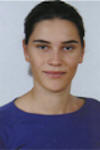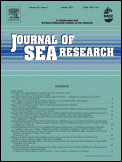|
 |
Prof. João Coimbra
Project promoter
CIIMAR
E-mail:
joao.coimbra@ciimar.up.pt
|
 |
Dra.
Joana Campos
Project
co-ordinator
CIIMAR
E-mail:
jcampos@ciimar.up.pt
Research theme:
Biogeography of estuarine species,
specially epibenthic crustaceans, and species
interactions. |
 |
Allan Souza
PhD
student
CIIMAR
E-mail:
allantsouza@gmail.com
Research theme:
Effects of climate change on the population dynamics and
productivity of key-species from European estuarine
ecosystems.
Climate change is a global phenomenon,
which is affecting differently distinct geographic
regions of the planet. Global climate change is
considered a direct result of varied human activities
and is currently one of the most controversial topics in
environment, ecology, and governance. Estuaries are
essential systems to the ecological balance of various
organisms. Among other processes, estuaries provide
nursery and feeding areas for numerous aquatic and avian
species. Due to the high biological significance and
value of estuaries, it is important to know the dynamics
and productivity of estuarine species. Subsequently,
productivity and dynamics data may be used within
appropriate tools to make predictions regarding the
imminent impacts of climate change on estuarine systems.
To accomplish this, a series of interconnected studies
will be carried out, in order to ultimately develop
consistent ecological models that will be capable to
predict the effects of climate change on the population
dynamics and productivity of selected key-species
species along a latitudinal gradient of European
estuaries.
|
| |
Ester Dias
PhD
student
CIIMAR
Research theme: Trophic interactions in European
estuarine ecosystems
|
 |
João Paulo Machado
PhD student
CIIMAR
E-mail:
jprmachado@gmail.com
Research theme:
Evolutionary characterization of genes involved in
development and adaptation in vertebrate species under
differential environmental conditions of selective
pressure
Species that occupy heterogeneous
environments are influenced by different selective
pressures and are expected to express inter- and
intra-specific genetic variation that is related with
habitat differences. If phenotypes were acted upon by
natural selection, the genes responsible for these
phenotypes would be expected to carry detectable
signatures of selection in the spatial distribution of
genetic variation.
Genomic differences between ectothermic
and homeothermic species and their populations help to
understand the response of vertebrate genomes to
environmental constrains, providing insight (at
mechanistic levels) into the evolution of novel traits
and the contribution of regulatory pathways. Genes
involved in phenotype (e.g. development of skeleton, eye
and ectodermical appendices) and physiology (e.g.
adaptation to temperature, salinity, metabolism and
detoxification) are important to understand the
adaptation of the organism. Unraveling the effects of
major selective forces operating in important
gene-products may allow the prediction of the future of
populations under changing environmental conditions or
anthropogenic influence.
|
 |
Rute
Pinto
PhD
student
CIIMAR
Email:
fiuza.rute@gmail.com
Research theme: The spatial planning in the
management of global climate effects on Minho estuary
(Portugal)
Climate change and sea level rise are unequivocal. In
the future, the likely effects of climate change
and sea level rise will be different according to the
coastal zones characteristics. Therefore, coastal zones
including estuaries will be particularly affected
requiring appropriate planning and management to
mitigate and adapt damages.
The
aim of my research is to develop a set of mitigation and
adaptation measures to climate change to be integrated
into spatial management instruments, especially in the
review of the existing, and in the coming, covering the
Minho river estuary and the adjacent coastal zone, using
Geographic Information System (GIS) as a supporting tool
to improve the management of the climate change effects.
|
| |
Vânia Freitas
PhD
student
NIOZ
Research theme: Modelling of intra- and
interspecific physiological capacities by means of
Dynamic Energy Budgets.
|
 |
Ana
Rita Caldas
PhD
student
University of Bergen
Email:
Rita.Guillot@bio.uib.no
Research theme: Ecophysiology of estuarine species
for understanding differences and latitudinal trends in
estuarine ecosystems.
Ecophysiology, especially in what
concerns estuarine benthos, trophic webs and effects of
climate changes.
Latitudinal differences in the ecology,
morphometry and physiology of estuarine ecosystems.
Presently studying the ecophysiology of some key species
by comparison of the Minho estuary (North of Portugal)
population with several other European estuaries.
Traditional Morphometry and Geometric
Morphometrics as a tool for understanding differences
and latitudinal trends in estuarine ecosystems.
|
 |
Sofia Gonçalves
CIIMAR
E-mail:
sofia.goncalves@ciimar.up.pt
Research Technician
of Isotope Ratio Mass Spectrometry |
 |
Alexandra Caetano
Research grant
CIIMAR
Email:
caetano.al@gmail.com
Research theme: Hydrodynamics modeling of Minho estuary
|
 |
Cláudia Moreira
Research grant
CIIMAR
Email:
claudyamoreira@gmail.com
Research theme: Parameterization of models of
population dynamics of key species in Minho estuary
using the Dynamic Energy Budget model (DEB)
|
 |
Fabiana Freitas
Research grant
Email:
fabi.pintofreitas@gmail.com
CIIMAR
Research theme: Population dynamics in Minho estuary
key species Crangon crangon
|
| |
Ana Mafalda Ferreira
BsC biology student
Volunteer
|
| |
Felipe Ribas
BsC biology student
Volunteer
|
| |
Maria João Almeida
Biology
teacher
Volunteer
|
| |
Sandra Almeida
Technical support
Theme: Population dynamics in Minho river specie
A. desmarestii
|
| |
Eduardo Martins
Field
technical support |














